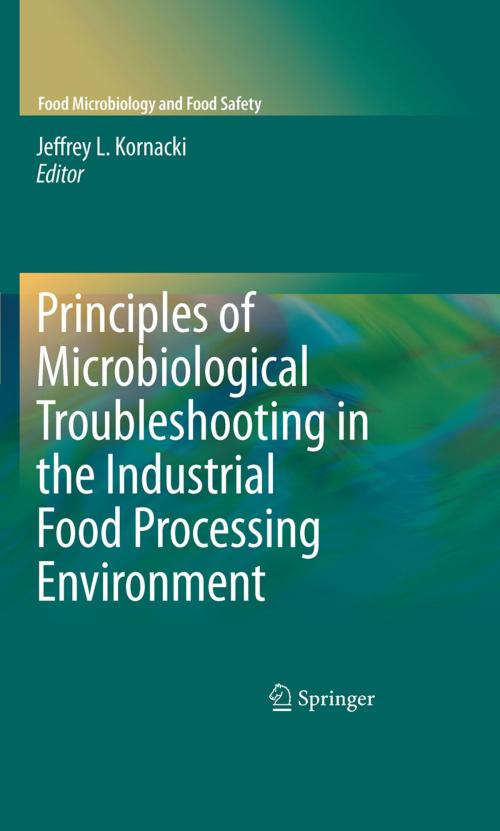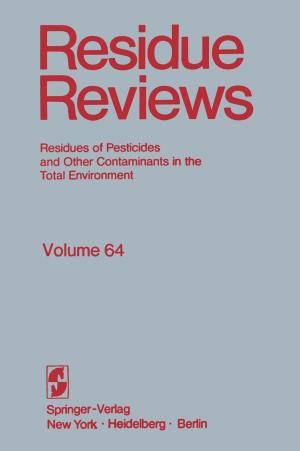Principles of Microbiological Troubleshooting in the Industrial Food Processing Environment
Nonfiction, Science & Nature, Technology, Food Industry & Science, Science, Biological Sciences, Biotechnology| Author: | Michael P. Doyle | ISBN: | 9781441955180 |
| Publisher: | Springer New York | Publication: | May 19, 2010 |
| Imprint: | Springer | Language: | English |
| Author: | Michael P. Doyle |
| ISBN: | 9781441955180 |
| Publisher: | Springer New York |
| Publication: | May 19, 2010 |
| Imprint: | Springer |
| Language: | English |
Principles of Microbiological Troubleshooting in the Industrial Food Processing Environment provides proven approaches and suggestions for finding sources of microbiological contamination of industrially produced products.
Industrial food safety professionals find themselves responsible for locating and eliminating the source(s) of food contamination. These are often complex situations for which they have not been adequately prepared. This book is written with them, the in-plant food safety/quality assurance professional, in mind. However, other professionals will also benefit including plant managers, regulatory field investigators, technical food safety policy makers, college instructors, and students of food science and microbiology.
A survey of the personal and societal costs of microbial contamination of food is followed by a wide range of respected authors who describe selected bacterial pathogens, emerging pathogens, spoilage organisms and their significance to the industry and consumer. Dr. Kornacki then provides real life examples of in-plant risk areas / practices (depicted with photographs taken from a wide variety of food processing facilities). Factors influencing microbial growth, survival and death area also described. The reader will find herein a practical framework for troubleshooting and for assessing the potential for product contamination in their own facilities, as well as suggestions for conducting their own in-plant investigations. Selected tools for testing the environment and statistical approaches to testing ingredients and finished product are also described. The book provides suggestions for starting up after a processing line (or lines) have been shut down due to a contamination risk. The authors conclude with an overview of molecular subtyping and its value with regard to in-plant investigations.
Numerous nationally recognized authors in the field have contributed to the book. The editor, Dr. Jeffery L. Kornacki, is President and Senior Technical Director of the consulting firm, Kornacki Microbiology Solutions in Madison, Wisconsin. He is also Adjunct Faculty with the Department of Food Science at the University of Georgia and also with the National Food Safety & Toxicology Center at Michigan State University.
Principles of Microbiological Troubleshooting in the Industrial Food Processing Environment provides proven approaches and suggestions for finding sources of microbiological contamination of industrially produced products.
Industrial food safety professionals find themselves responsible for locating and eliminating the source(s) of food contamination. These are often complex situations for which they have not been adequately prepared. This book is written with them, the in-plant food safety/quality assurance professional, in mind. However, other professionals will also benefit including plant managers, regulatory field investigators, technical food safety policy makers, college instructors, and students of food science and microbiology.
A survey of the personal and societal costs of microbial contamination of food is followed by a wide range of respected authors who describe selected bacterial pathogens, emerging pathogens, spoilage organisms and their significance to the industry and consumer. Dr. Kornacki then provides real life examples of in-plant risk areas / practices (depicted with photographs taken from a wide variety of food processing facilities). Factors influencing microbial growth, survival and death area also described. The reader will find herein a practical framework for troubleshooting and for assessing the potential for product contamination in their own facilities, as well as suggestions for conducting their own in-plant investigations. Selected tools for testing the environment and statistical approaches to testing ingredients and finished product are also described. The book provides suggestions for starting up after a processing line (or lines) have been shut down due to a contamination risk. The authors conclude with an overview of molecular subtyping and its value with regard to in-plant investigations.
Numerous nationally recognized authors in the field have contributed to the book. The editor, Dr. Jeffery L. Kornacki, is President and Senior Technical Director of the consulting firm, Kornacki Microbiology Solutions in Madison, Wisconsin. He is also Adjunct Faculty with the Department of Food Science at the University of Georgia and also with the National Food Safety & Toxicology Center at Michigan State University.















